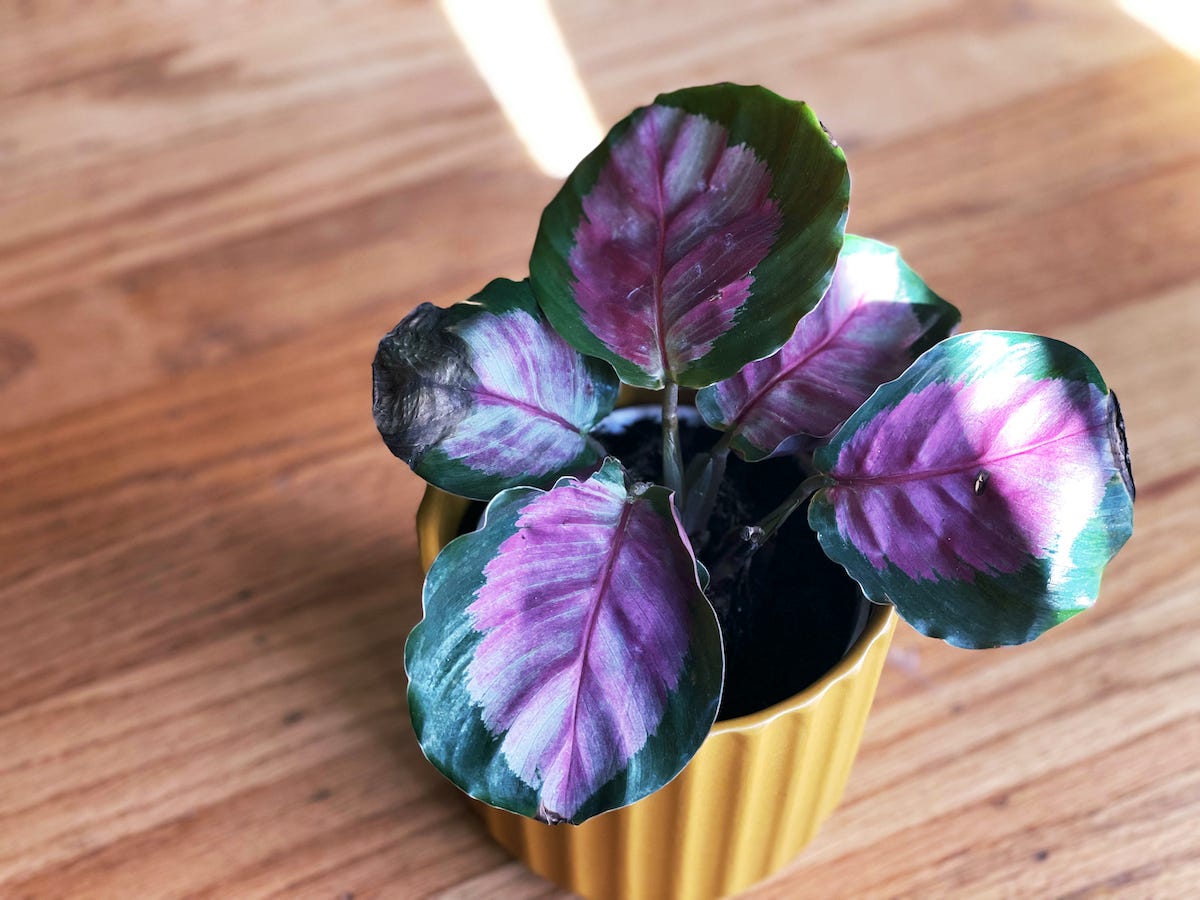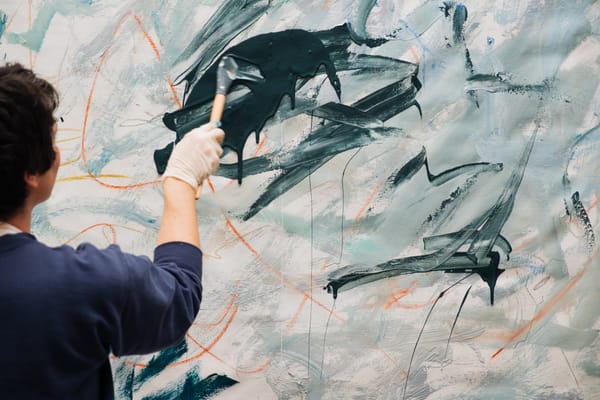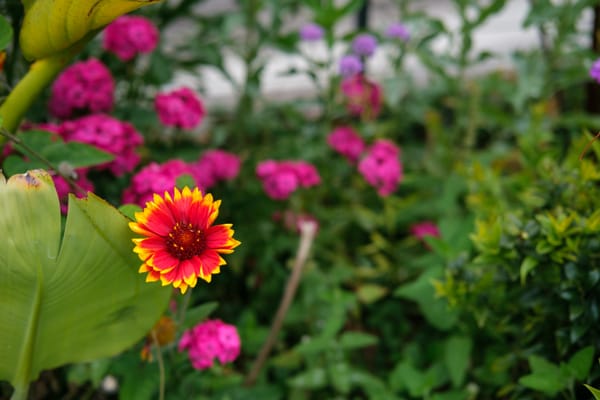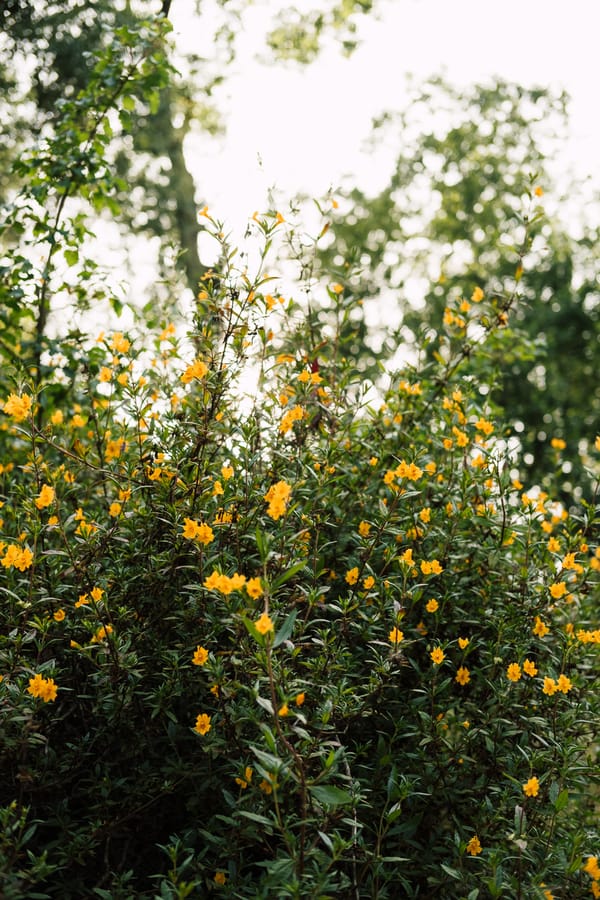🔎 In Focus: Coffee creative Lucia Bawot
An in-depth interview on her filmmaking, photography, and new book

📝 Notes from Jenn:
- Today is Zoey’s 3rd adoptiversary! She’s come a very long way on leash reactivity and we are now working on separation anxiety.
- Go Fund Bean has two big pieces of news: results from the coffee worker wage survey (before tips, the nationwide average is $14 per hour/$18,900 per year; after tips, it’s $24,100-$34,500). And second, applications for this year’s mentorship program are now open! We need both mentors & mentees, so please consider applying if you have the time to dedicate to the program and fit within the guidelines.
🛠 Current project: My calendar only exists in digital form. I still don’t know how I used to manage with a paper planner but maybe things didn’t get moved around as often back then. But this one-page calendar, where the entire year exists in one table, blew my mind. So I’m considering 1) fully understanding it in the context of leap years and 2) (assuming 1 goes well) making it more attractive and putting it up on my wall.
🔏 Last week, paid subscribers received a reflection on choosing article interviewees. “Would your advice change for those who hold marginalized identities?” is a question I ask if there is a cultural or human psych angle in the piece. I don’t always get a good answer and I can tell right away if someone had never considered the question before (not a good sign for those in academia).

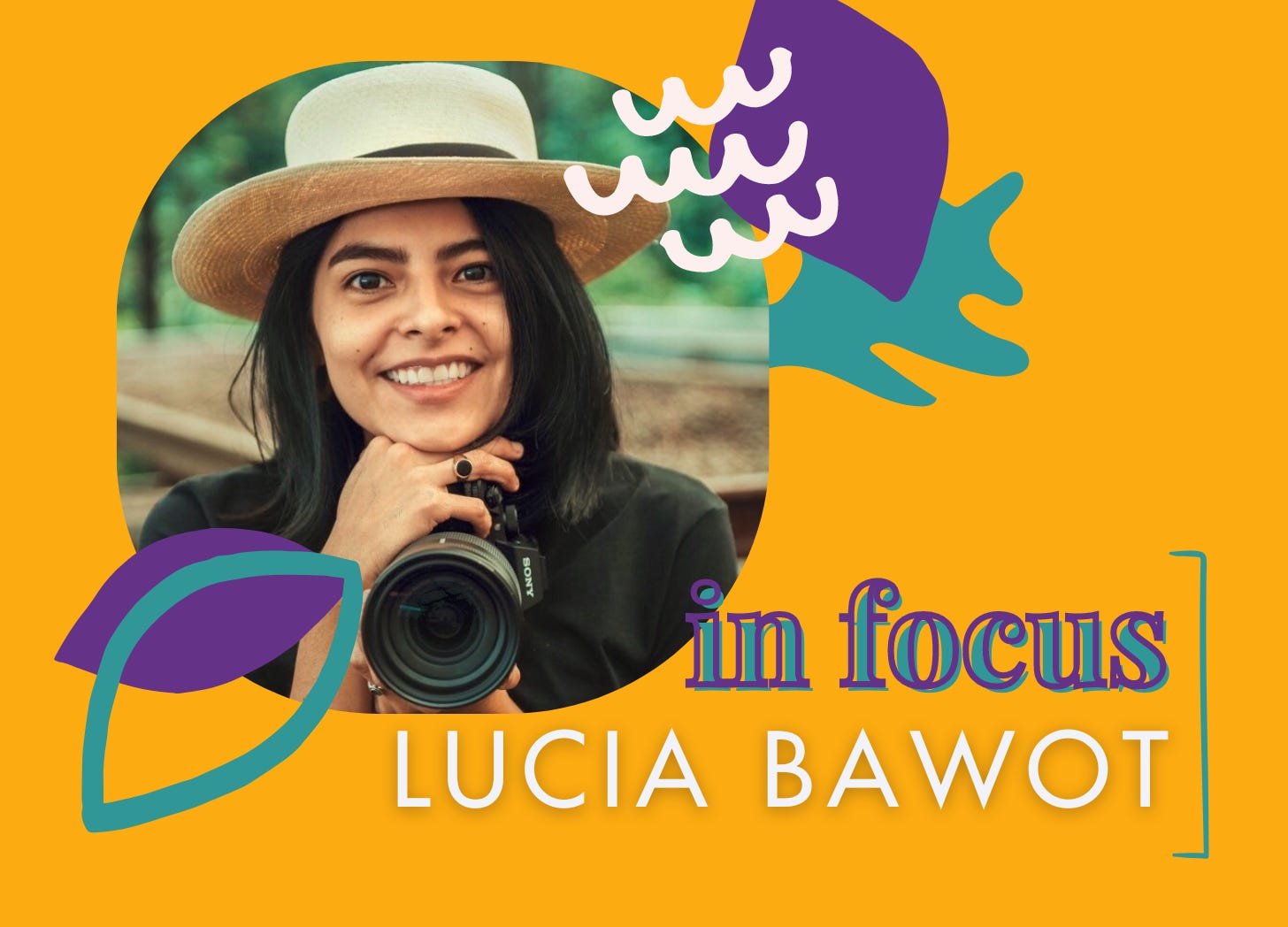
In Focus: Interview with creator Lucia Bawot
Despite being from a coffee region in Colombia and having grandparents who were coffee farmers, Lucia Bawot was not interested in learning about coffee. But this interview series is about people in or adjacent to coffee, so she did eventually reach a turning point and was able to reexamine her family connection to coffee. With ten years of industry experience as a specialty coffee filmmaker and photographer under her belt and a forthcoming book “We Belong,” that showcases women coffee producers1, she’s ready for the next stage of her career.
Lucia’s coffee origin story—pun intended—is a good one: while she was working on her degree in photography with an intent on pursing a fashion focus, she volunteered at Let’s Talk Coffee, an event hosted by Sustainable Harvest. This led to her being hired by the nonprofit to work out of its Colombia office. However, the position did not entail any photography, so she decided to strike out on her own. “I didn’t have any clients at the time, so I went back to my hometown,” she recalls. “I feel like that was a huge mistake, but then I see what I've done, what I have accomplished, and how I feel as a woman now. And I'm like, no, I think that was the right choice for me.” It was a brave move to go freelance and one that worked out incredibly well for her.
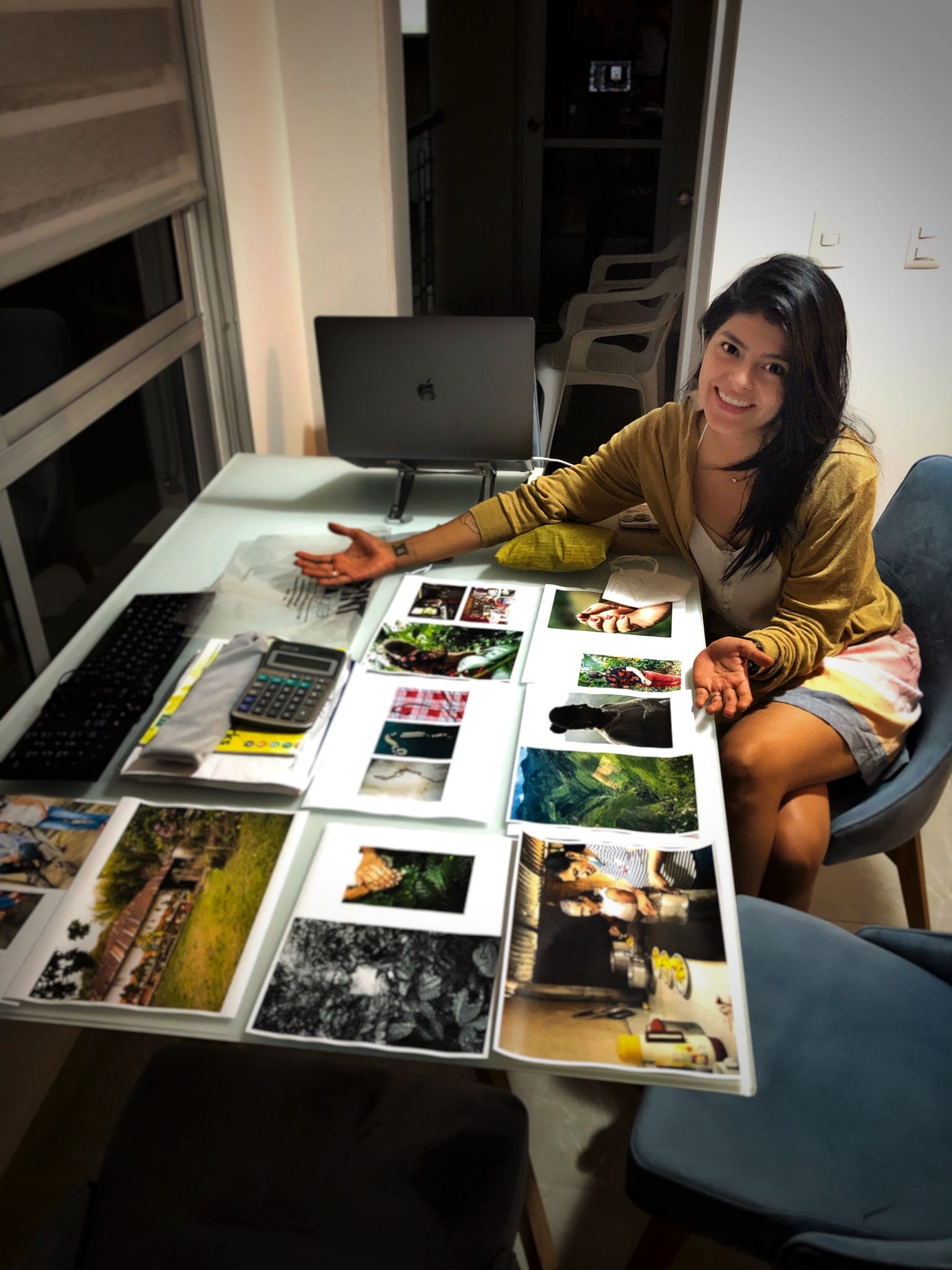
We discussed a whole range of subjects: how she became a commercial photographer, what inspired the book’s creation, dealing with imposter syndrome, and where she thinks the coffee industry can do better with gender equity. She spoke to me from her home base in Connecticut.
In Focus is a series of interviews with creatives who are in or adjacent to the coffee industry. All photos are courtesy of Lucia.
Making the book
Her book “We Belong” is focused on the lives of women coffee farmers in Colombia. Her criteria were that these women had to own a farm in Colombia (which made her reflect on “what do you need to be considered a coffee farmer?”) and be partnered through the companies she worked with, as she wanted to see the real people behind their programs. As a woman from Colombia and recently married during the pandemic, she found that they were willing to connect with and open up to her in a way that others may not have been able to do. The work also helped her with feeling like she belonged in the coffee industry.
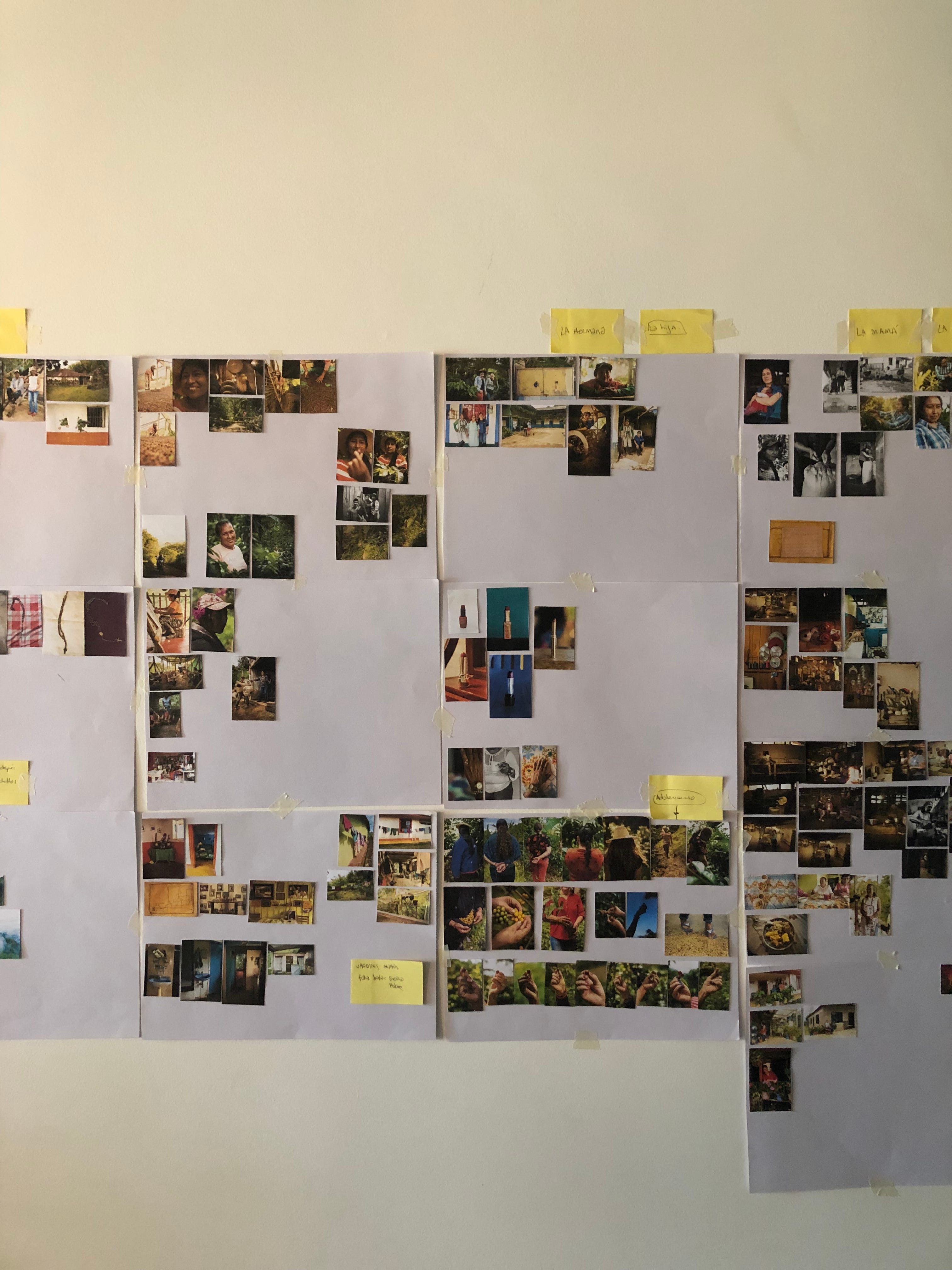
Jenn: I did have some questions that are related to photography and your book. So you're doing portraits and also storytelling at the same time of the person that you're highlighting. Can you talk about what goes into a portrait? How do you find the people? How do you arrange the session? Because I don't think a lot of people know all the work that goes into it.
Lucia: In terms of taking the photos, I always started with the interview. So they knew that I was going to visit them and they knew that I was going to stay with them for a few nights. And they knew that I was making a book. For me, it was really important to first just sit down and talk to them. They're always really curious to know like, why are you here? Why me? And why are you doing this?
The interviews were done in kitchens most of the time because these women are always doing things around the home and they couldn't stop just for this visit. When I went before to visit farmers, there were mostly men, and it's a whole event: they sit down, they bring food, and they have all the time in the world to sit down with you. In this case, it wasn't like that. They kept going with their lives, and it was really noisy. Sometimes we sat down for a few minutes or half an hour, but then they were like, okay, I need to start preparing lunch, or I need to do this, or we need to go to a couple of locations.
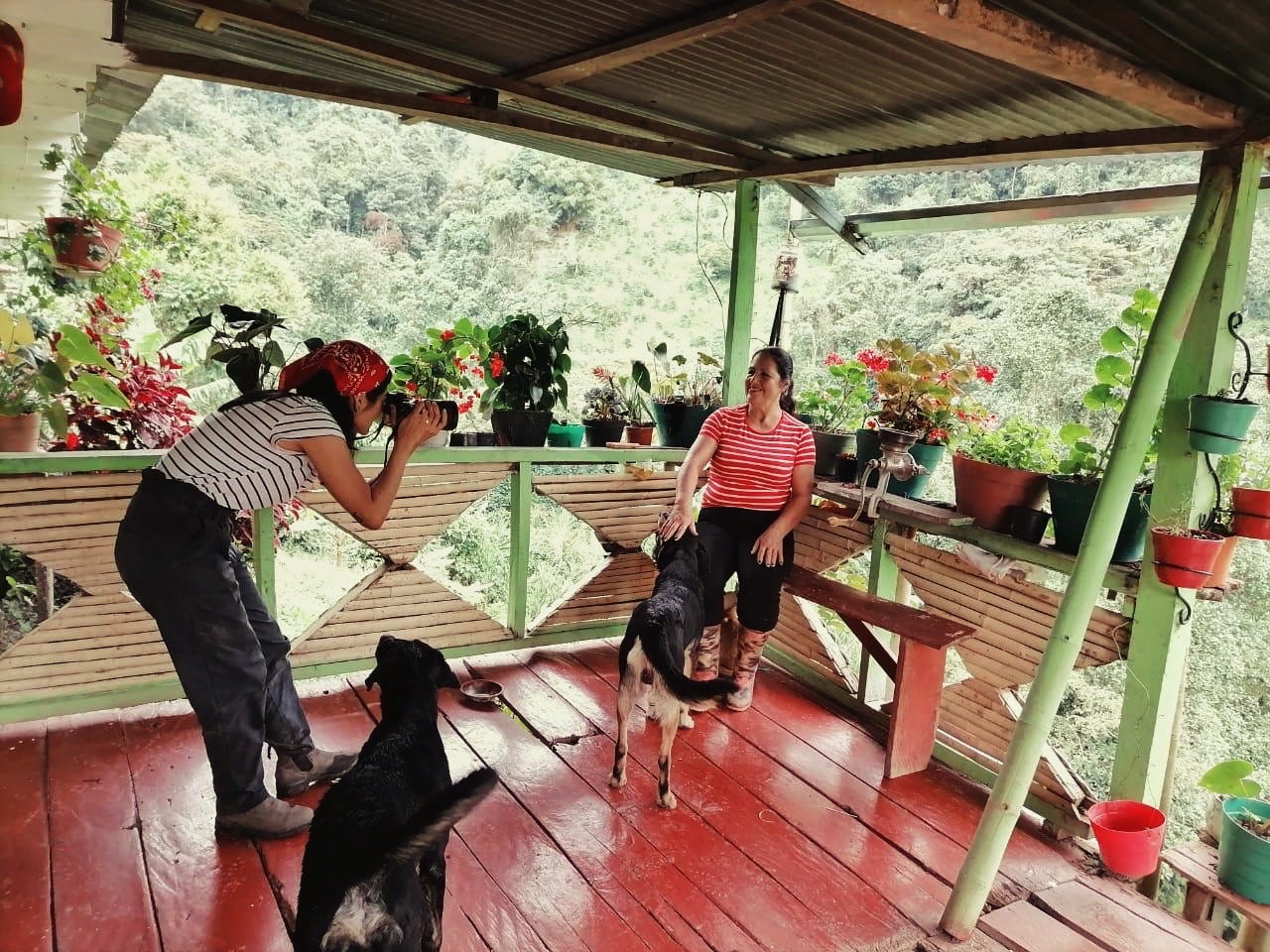
When I started listening to all the stories and asking so many questions, it was so evident that I needed to tell those stories, not only with photos. We started talking about their lives, their backgrounds, and their human struggles and aspirations. I started hearing the stories of domestic abuse, or depression, or losing a child because the child committed suicide, or losing a husband. So it was like, oh you're like me. We have the same struggles, we go through the same pain. It doesn't matter where you're from. So for me, that really opened a new door and I was like, oh my God, this is what I want to do. Because this book, I wanted it to be universal.
After we signed the photo release, that's when I started taking photos, and the whole point was to try to make the camera almost disappear. We had to take a lot of pictures. I think portraits really become alive after you talk to a person for a long time because you understand what you want to showcase.
Do you feel like you're part of the industry now?
Finally? I feel, yes. And also cause I realized that my grandmother was a coffee farmer. While I was writing, like digesting all these interviews, and started writing the stories, I kept thinking to myself, I've heard this story before. It clicked: that's the story of my grandmother. My grandmother was a coffee farmer and I never thought about that. She was born on a coffee farm. She was working since she was seven years old. She became the mother of the house because she lost her mom. She wasn't allowed to go to school because she had to be in charge of the house. She was cooking for workers.
It comes from family hiding all of this. For my family, the hero is my grandfather. So I start asking why we never say that my grandmother was also a farmer? Why do we always say that he was the hero? She was the one taking care of all the kids. She was the one raising them. There are a lot of unspoken things in families. So after that happened, I was like, oh yeah, I'm part of this industry. I come from a coffee family, I have coffee in my blood and now I understand why this is so important to do. So it was extra motivation after I found that out.
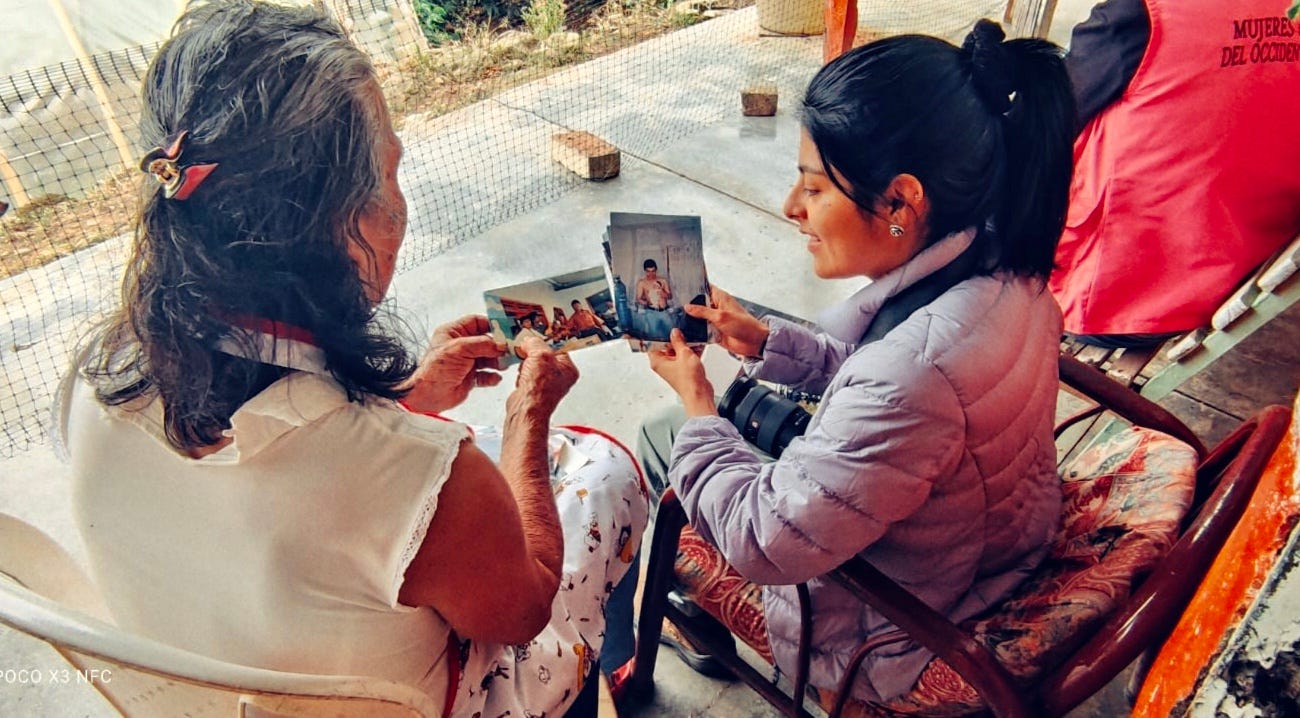
Marketing and consent
During the journey of making the book, Lucia dealt with some internalized misogyny. “I always had this bad relationship with women. It was really hard for me to make girlfriends and to engage with women in general,” she shares. “But it healed me. It healed a lot of my fears. I relearned many things. I finally empathized with all the women from my family and women that are close to me, which I don't think I ever had done that.”
Thank you for sharing. You actually touched on one of the things I was going to ask you about, which was how do you handle consent? This is such a big topic—or I think it should be a big topic in marketing in the consuming end. And I've seen a few people consider a consent form or even say they don't want to put producer photos onto the bags anymore. Do you have any thoughts on that?
That's been the marketing tool for a lot of companies for a long time, like showing this romanticized story of a farmer and how we need to help them, almost this white hero. I feel like we could be still using photos of farmers if we were more transparent with them.
This idea of just taking the faces out of the packaging, I don't think it's a good solution for the coffee industry. At least in the US, I feel a lot of people still don't know where their food is coming from. They don't even know how it's grown, what a coffee plant looks like, who the farmers are. But then we need to understand that the ultimate goal is to get more people to drink coffee, to be more responsible of the purchasing. And to understand that there's a human behind this whole beverage. If there are more terms and it was more set, like they knew how they're going to use it, who is getting paid for this, I think farmers will feel fine, and they'll be happy to keep sharing.
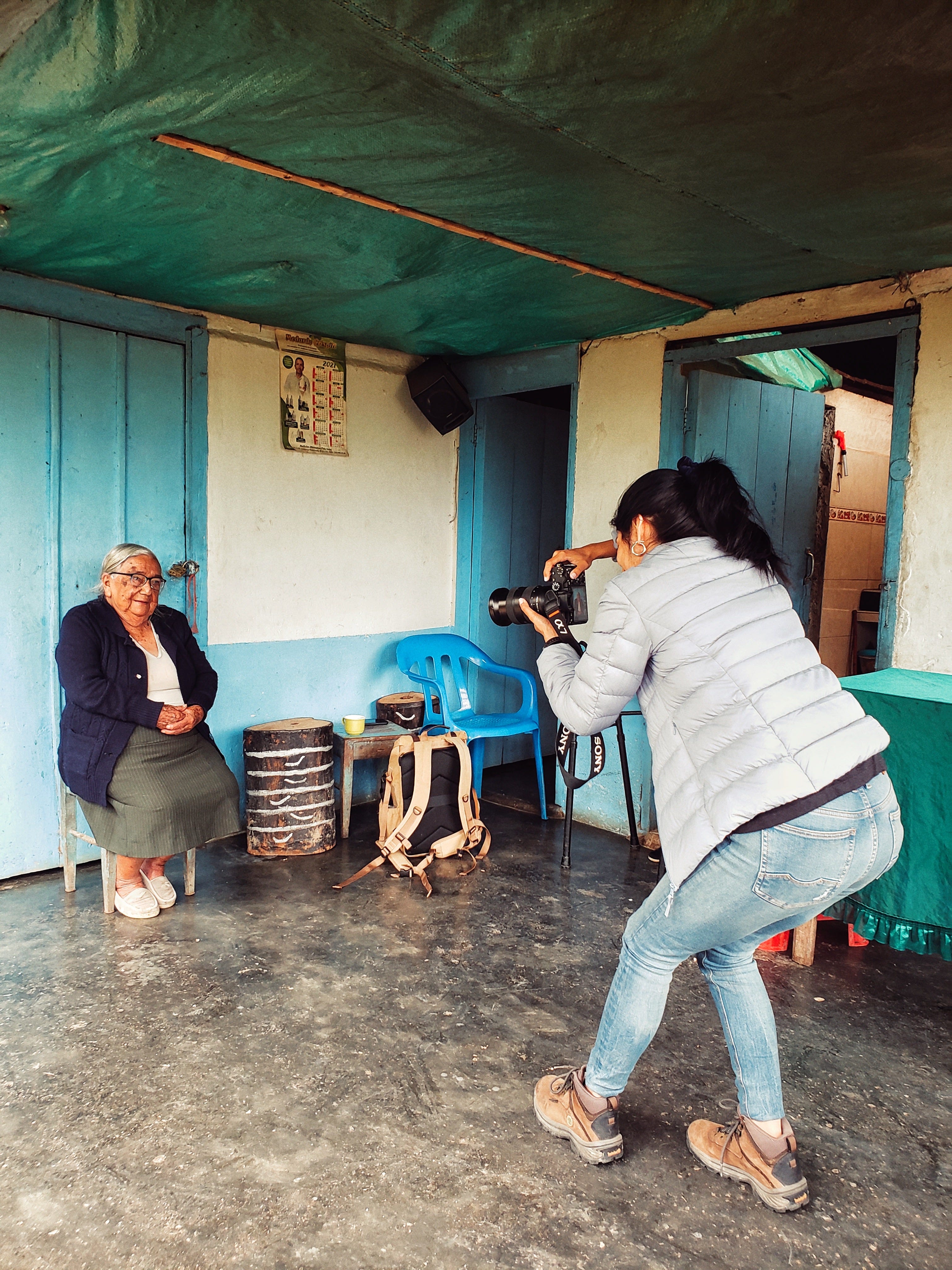
Jenn: That's an interesting perspective. In travel writing, there's this term called parachuting. Have you heard of it? <affirmative from Lucia> I think a lot of coffee photography kind of is like that, where it's just someone going in, taking a photo, and just leaving. And I know visits get really complicated, and they're really packed in schedules and stuff. But do you feel like your background has helped in connecting to these women? Or do you think anyone else could have done that?
At the beginning, I was like, anyone can make this book. But now that I'm done, I'm like, no, it could only be me. And not coming from an egocentric point of view, but it's like, I have everything in me to make this book. My background being a woman, being from Columbia, being from a coffee town, like everything— I had everything, and I didn't know it. I don't think anyone can make “We Belong.” They can make a new book as exciting, as interesting as what I've been doing, but it's never going to be the same book. For sure, it has helped me a lot to be from Colombia, to speak Spanish, to understand the political situation in Colombia.
And that's another point now that you're saying like, oh, the photos look the same. I agree with you. And I think it's because, as you were saying, they just go and they hire this team to take some photos and they're so professional, but they don't know anything about coffee. If you don't understand the industry and you don't understand those people’s ways of seeing life, how are you gonna document this? I do feel like there is a big opportunity for content creators in origin countries to start showcasing their work more and getting hired by companies.
I've took the time to take sustainability courses and a social economy course. I took courses on how to be a barista and cupping, because all these tools can only make you more confident around these people. Now I know how to do that, so I know how close I can go. I know what to ask and what not to ask.
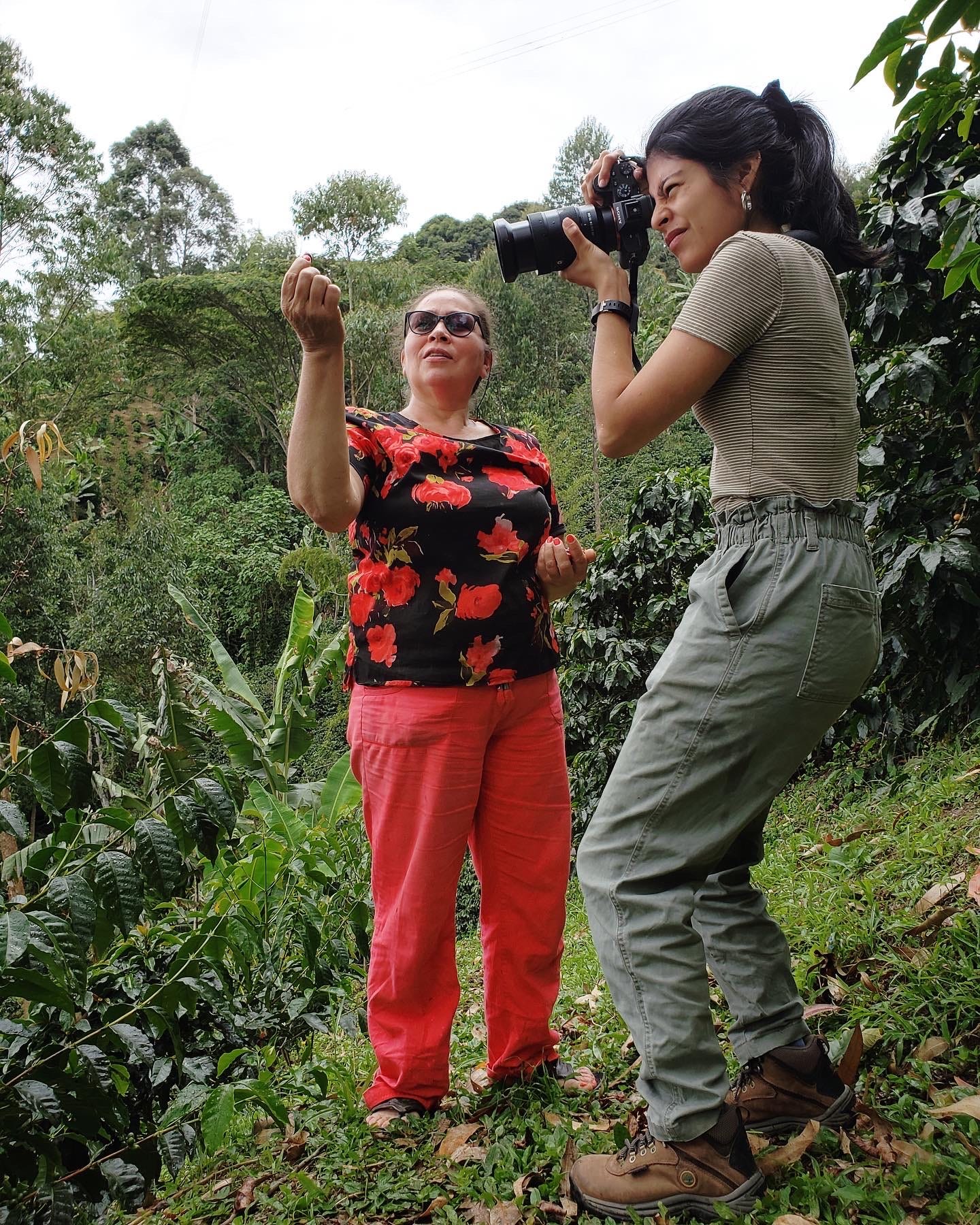
I had one big client that I was getting all these complaints from the farmers saying like, ‘Oh, they always come here. They always take photos, but I've never seen the photos. They've never taken the time to even send the pictures. Like, we don't care if they're using the pictures in a cafe or a coffee packaging, but I want to see the pictures. I want them, it's me, right?’
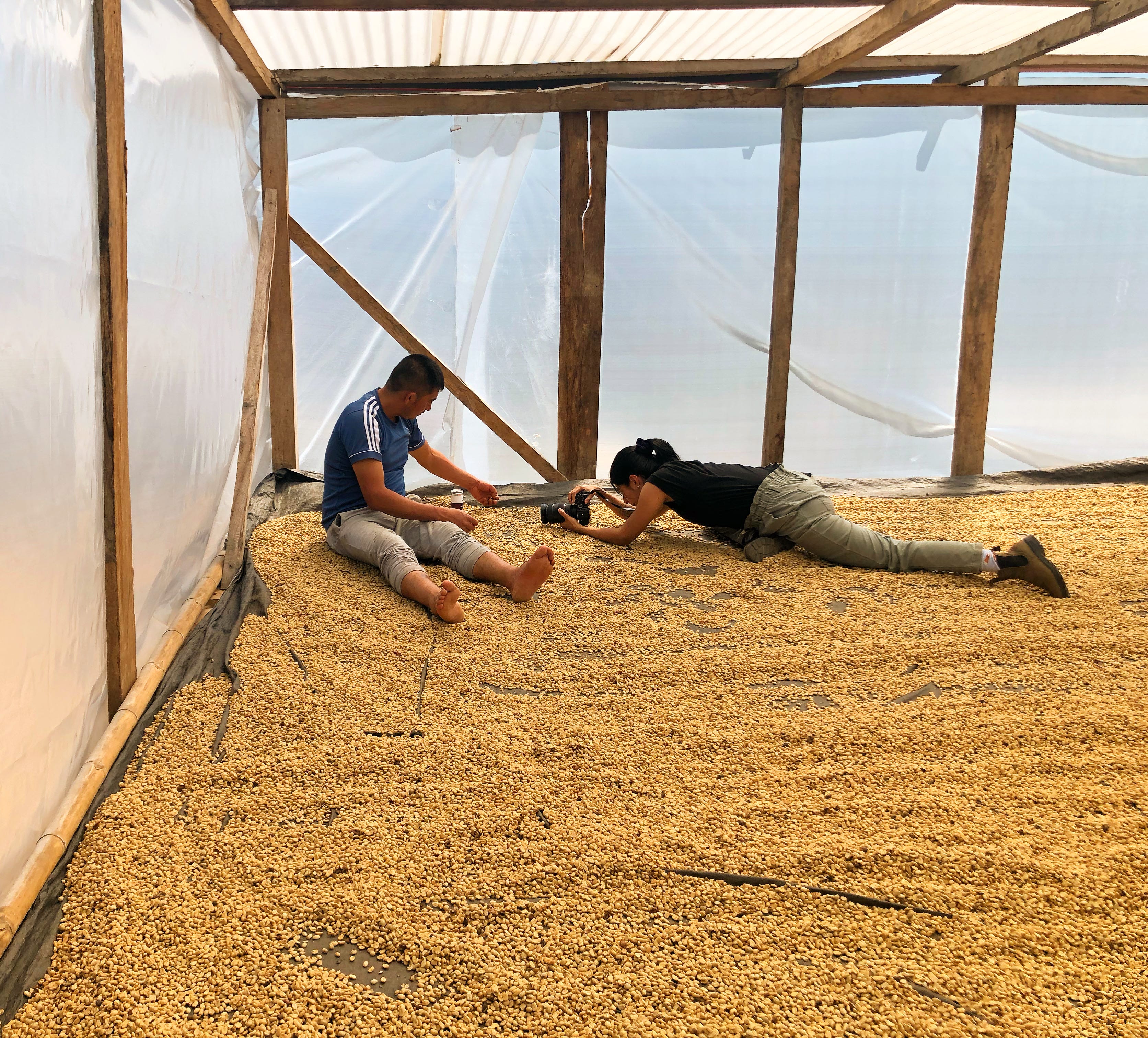
After Lucia conveyed the feedback to the client, the farmers received photos of themselves. But she had one more point about marketing to make before our interview ended and that was to consider crediting families instead of a singular producer or marketing it as women-grown. From her many visits to various farms, she observed families working together, not only the one person who’s often credited as the producer. It all leads back to the question of “what do you need to be considered a coffee farmer?” Lucia says. “Who created a guideline of the requirements? Because when you go back to statistics, like women have been doing 70% of the activities2, the labor at the farm, right. So we could say that most coffee is grown by women.”
In the coffee industry, we’ve been pushing gender equality and equity programs, but what Lucia observed was that the copy-and-paste style did not always work. After an interview was done, she was often thanked for listening. The women would say, “It's the first time that someone sat down with me to ask me questions and was genuinely interested in listening what I have to say, what I think, what I dream about, what I want.”

There’s more to share from my interview with Lucia, which I’ll continue as bonus content for paid subscribers. We’re past 2000 words at this point, which is usually my cutoff for pieces. To follow along with Lucia’s journey, you can find her on Instagram @luciabawot and on her website. Her book “We Belong” opens for preorders next month, and she’ll be exhibiting her work at the upcoming SCA Expo in Portland.

📤 digital marketing
- Your Great Taste Is Less Fulfilling When It Comes To Visual Design [New Research] [Content Marketing Institute]: A good reminder on how you are not your target audience
- TikTok Provides 70,000 New Data Insights to Help Marketers Maximize Their In-App Efforts [Social Media Today]: The article is a summary; here’s the direct link to the filterable data.
- What Marketers Need to Know About ChatGPT, Google's Bard, and Microsoft's Bing Chatbot [HubSpot]: Pro/cons for each AI chatbot
👀 interesting reads
- ‘It’s a control thing’: why are we so fascinated by super-organised homes? [The Guardian]: Honestly, the need for control explains my own interest in tidiness.
It’s the age of decanting – never before have household perfectionists removed so many things from packages only to put them in other packages. Extreme tidiness is a modern obsession. But is it healthy?
- Why everyone feels like they’re faking it [The New Yorker]:
The concept of Impostor Syndrome has become ubiquitous. Critics, and even the idea’s originators, question its value.
"Advocate for yourself" is career advice we all hear. But for Black professionals, it's complicated, a new survey finds.

